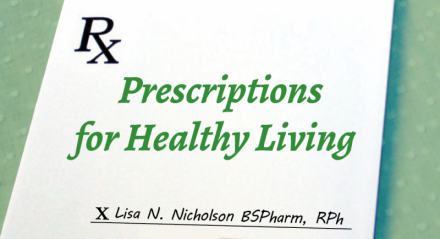

Lisa Nicholson is a native of North Georgia and graduate of the University of Georgia College of Pharmacy. She’s been practicing for over 30 years in retail, home health and hospital pharmacy.
Spring is in the air. Those spring blossoms and Mountain Laurel blooms, however, are not welcomed by everyone. People suffer from seasonal allergies this time of year.
Seasonal allergies affect about 40 million to 50 million people in the United States and are one of the top causes of absenteeism from work and school. Symptoms can include congestion, sneezing, itchy nose, watery eyes, and itchy eyes. Allergies also have been linked to several chronic respiratory illnesses, such as sinusitis and asthma.
Pharmacists are the most accessible health care provider and are available to help the public choose the best over-the-counter (OTC) medication for allergy symptoms.
There are several different classes of drugs used to treat seasonal allergies. The best treatment depends on your symptoms and personal preference.
Nasal sprays or rinsing you nose with a salt water solution can help with drainage in the back of the throat, sneezing nasal dryness and congestion. Several new OTC (over the counter) nasal sprays that were once prescription are now available. They are considered steroid nasal sprays and in general, seem to have less side effects than allergy medications taken orally ( by mouth). They are Nasacort and Flonase.
Oral antihistamines such as Zyrtec, Allegra and Claritin, relieve symptoms of itching and runny nose. These antihistamines don’t cause drowsiness like Chlor-Trimeton or Benadryl.
Decongestants are often combined with antihistamines in OTC allergy medications. Some examples are: Sudafed, Actifed or phenylephrine. Decongestants elevate the blood pressure and can aggravate certain cardiovascular conditions. There are decongestant nasal sprays, but I don’t like to recommend these because they can cause ‘”rhinitis medicomentosa” – a condition that causes MORE congestion in the nasal passages.
There are lots of options available to treat seasonal allergies. Consult your healthcare professionals: your doctor and your pharmacist. REMEMBER you are part of a powerful team! Your Doctor, your Pharmacist and YOU! Talk to them and together you can take control of your health.
Disclaimer: The advice in this column is meant to help guide you in your personal healthcare decisions. Consult your physician before changing or adding new medications to your regimen.







